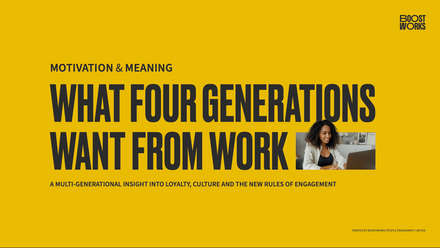Flexible working can be for all – not just employees with desks
It’s easy to deny flexible working requests when the employee’s job can’t be done at home or outside of normal working hours, such as retail assistants, construction workers and lorry drivers.
After all, you can’t re-stock shelves, build a property or drive a haulage truck from home.
However, flexible working shouldn’t just be seen as where and when you work, it’s far more than this. By addressing every employee’s distinct needs, it’s possible to provide everyone with a level of flexibility that makes them feel seen, appreciated and empowered.
Employees with a high sense of flexibility are four times more likely to feel valued and 12 times more likely to feel a high sense of appreciation. This level of employee satisfaction is then reflected in engagement levels, work output and tenure.
Equitable flexibility, regardless of job role
Flexibility does not need to be the same for every employee for it to be equitable, but every employee needs some flexibility in what they work on, how they accomplish their work, and how they manage their working day.
Managers need to take the time to get to know their employees as individuals to understand what level of flexibility will make them feel more valued and cared for.
Regular one-to-one meetings are important here so that leaders can obtain an all-round view of each employee including their challenges and career ambitions.
Flexibility for one employee may mean having the opportunity to take time away from work for emergencies or parental duties such as childcare issues, school plays and hospital appointments. In turn, this means empowering managers to adjust working schedules to fit changing life circumstances.
Autonomy and opportunity
Another employee may desire greater autonomy in how they accomplish their work, as well as the opportunity for learning during working hours.
The key is that employees must feel heard, understood, cared about and that their time both in and away from work is respected.
By building a level of flexibility into the employee experience, even if flexi-time and home working isn’t possible, will often give employees what they want from their job, while supporting an equitable and inclusive culture.
Insights taken from O.C. Tanner’s 2024 Global Culture Report
Supplied by REBA Associate Member, O. C. Tanner
The worldwide leader in employee recognition solutions that help people thrive at work.








